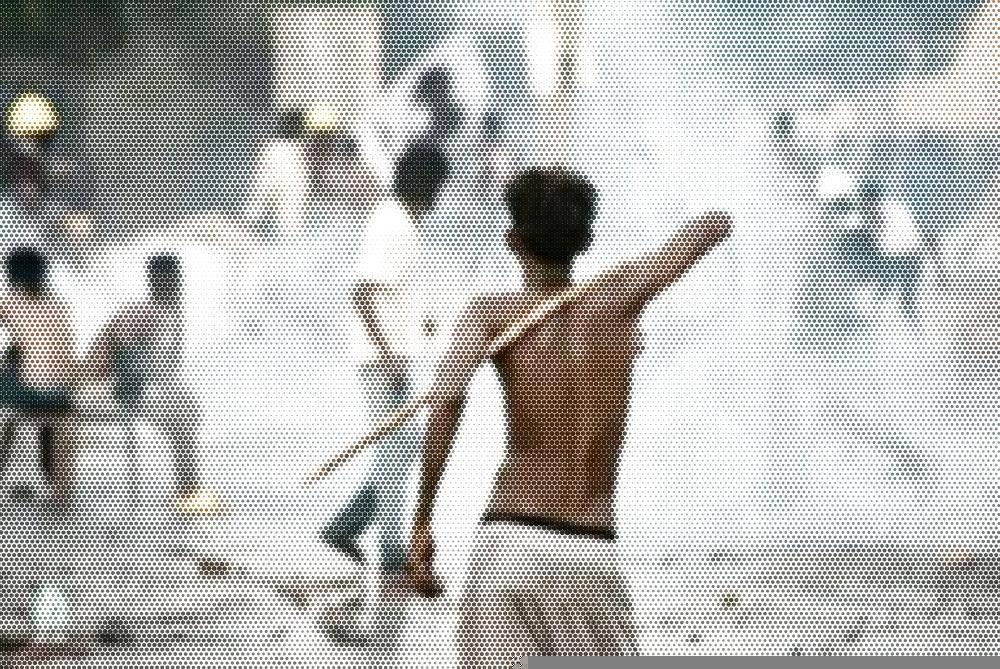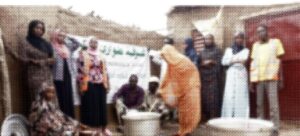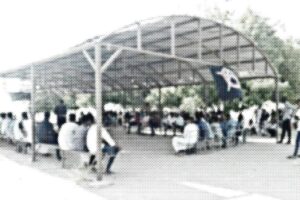
This short peice is also avalible as a flyer in readable and printable formats. Its also on our kofi to order in sets of three.
The Sudanese working class have always stood and fought for their freedom, from the multi-century struggle against British, Ottoman and Egyptian imperialism to the ongoing struggle against the neocolonialism of the UAE. In recent history, the Sudanese working class have come together to topple dictatorship after dictatorship. October 1964: Ibrahim Abbud’s regime was brought down by a general strike. 1985: Muhammad Numeiri’s dictatorship felt the same fate following years of industrial action across many sectors, often tied together with the student movement.
December 2018-19: President al-Bashir was deposed following a relentless campaign of strikes and sit-ins, many of which were brutally suppressed by the Army and Police. Most notably a demonstration outside the armed forces headquarters being massacred by the army, 100 people were martyred. The military coup of the civilian government that took over after the 2019 revolution is what led to the ongoing war and the displacement of millions. Despite this the workers, students and youth of Sudan have formed resistance committees, direct-democratic assemblies, often organised online, these initiatives have helped get food and medicine to people who needed it while steering people away from siding with government forces or the RSF—two sides of the colonialist, genocidal coin.
تسقط بس
Just Fall
“We, anarchists of Khartoum, are members of the “resistance committees” and we raise our flags during marches with the rest of the revolutionaries, and we promote anarchy by writing graffiti on the walls. We oppose all types of authoritarianism. We are for freedom of expression and individual autonomy.”
Sudan: Anarchists Against the Military Dictatorship
لا تفاوض، لا شراكة، لا شرع
No Negotiation, No Partnership, No Haggling
In December 2018, students in the city of Atbara, furious over an overnight doubling of bread prices, took to the streets in protest. Their actions ignited demonstrations across Sudan, as widespread anger over the economic conditions under the dictatorial regime boiled over. The SPA—a coalition of several labour unions and others—called for widespread protests forcing the regime to begin to crumble. The informal unions and political parties who took a leadership role in the early parts of the uprising later on became co-opted by the military forces. The emergence of the Sudanese anarchist movement in late 2019 as well as the learnings from the repression from the 2013 uprising, influenced the broader politics of the resistance movement in the streets.
To avoid state repression of the protects, the people organising in the neighbourhoods—called for the formation of neighbourhood resistance committees (RCs). Localised committees of people that would organise and coordinate protests in their areas. Initially, the RCs served primarily as a tactical response: grassroots cells that stretch security forces’ resources across multiple areas, thereby reducing the risk of brutal repression. Over time, the committees evolved into spaces for local people in the neighbourhoods to express their political demands. While the competing neo-colonial interests fought for control of the political narrative, the RCs positioned themselves as independent political actors. Beyond organising protests, the resistance committees took on additional responsibilities, such as providing basic services and coordinating public actions.
Even though the RCs were operating leaderless, the nature of post-colonial nationalism that’s present in modern Sudan limited opportunities for going beyond nation-statehood. A severing with the state once and for all. Furthermore, Due in part to social constraints around women’s late-night involvement, the people who tended to be at the late-night meetings were mostly young men. Meanwhile, in the protest actions themselves, women and girls often outnumbered men.
For now, the resistance committees provide an example of local spaces where people can encounter each other.
السلطةسلطةشعب
Power is the power of the people

Following the outbreak of conflict in April 2023 between rival armed factions, Emergency Response Rooms (often referred to as ERs) emerged in many parts of Sudan. Modelled loosely on the local, grassroots structure of the RCs, the ERs quickly provided vital humanitarian relief. The Emergency Response Rooms illustrated a new phase in the social revolution as local emergency response people organised statelessly and autonomously against the conflict. Without state institutions, they assumed responsibility for operating health facilities independently. Over time, the scope of the ERs expanded, encompassing assistance for people fleeing active conflict zones, mobilising communities to repair or maintain water and electricity infrastructure damaged by ongoing clashes, operating community kitchens, and distributing emergency rations—often with the support of local and diaspora donations.
السلام والحرية والتضامن
Peace, freedom and solidarity
References
“Flowers Will Emerge from the Desert”: Interviews and Communiqués from Sudanese Anarchists Available at: https://muntjacmag.noblogs.org/files/2024/12/Flowers-Sudan.pdf
Khartoum City Resistance Committees Coordination Press Release Available at: https://resistancecommittee.com/en/press-release-august-31-march-khartoum-city-resistance-committees-coordination/
You’re Always on That Phone: How Being Online Sustained Sudan’s Youth Revolution
Available at: https://logicmag.io/issue-21-medicine-and-the-body/youre-always-on-that-phone-how-being-online-sustained-sudans-youth/
Sudan: Anarchists Against the Military Dictatorship Available at: https://cs.crimethinc.com/2021/12/31/sudan-anarchists-against-the-military-dictatorship-an-interview-with-sudanese-anarchists-gathering
The Revolution in Sudan: Interview with a Resistance Committee Organizer Available at: https://itsgoingdown.org/the-revolution-in-sudan-interview-with-a-resistance-committee-organizer/
Organising under a Military Dictatorship: An Interview with Sudanese Anarchists Available at: https://libcom.org/article/organising-under-military-dictatorship-interview-sudanese-anarchist-gathering
The Future of the Resistance Committees in Sudan Available at: https://spectrejournal.com/the-future-of-the-resistance-committees-in-sudan
Barbarism in Sudan: a desperate appeal for help from Sudan’s anarchists! Available at: https://freedomnews.org.uk/2024/04/22/barbarism-in-sudan-a-desperate-appeal-for-help-from-sudans-anarchists/
Written by Sunwo and Mutt.

